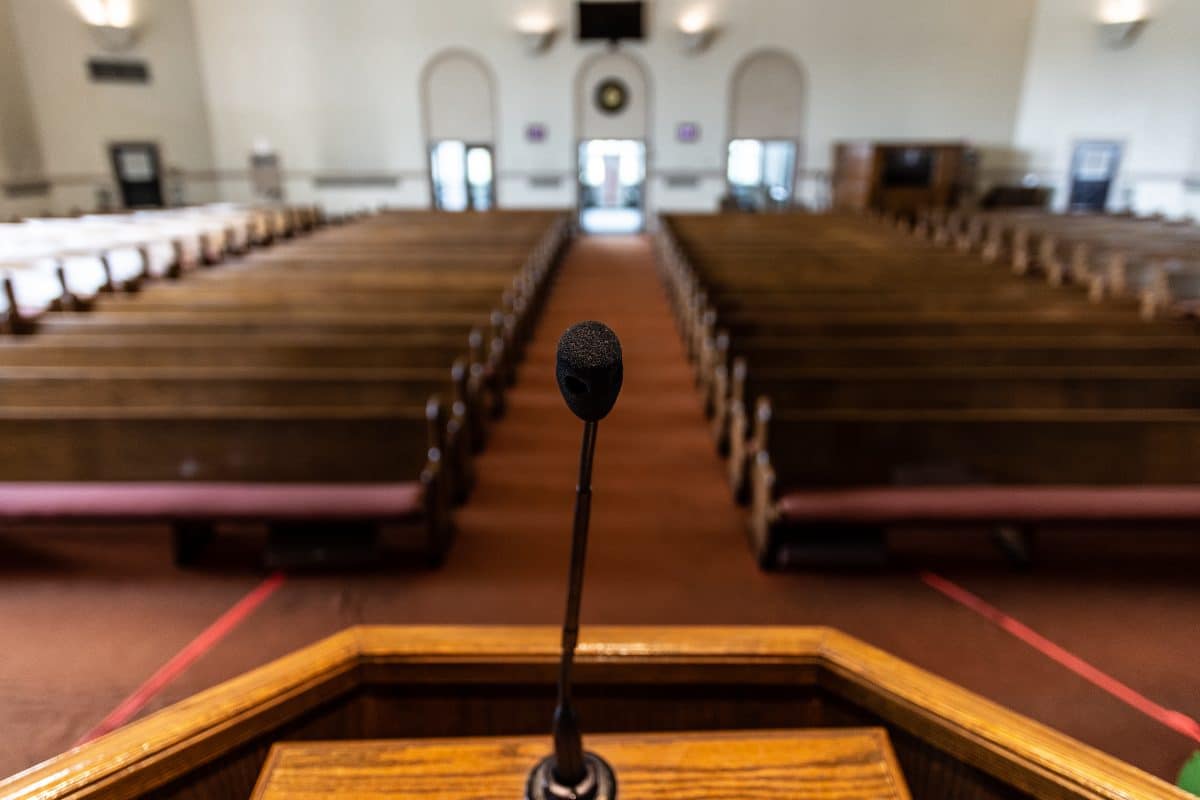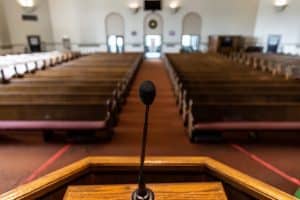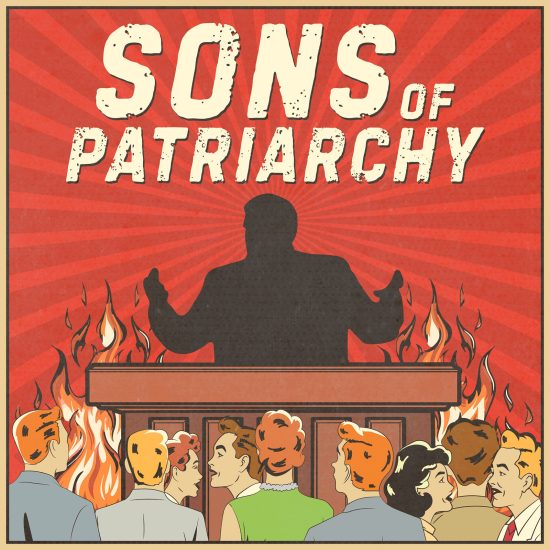
As coronavirus spreads in the United States, many religious services are moving online to help prevent the spread of the outbreak. The decisions to cancel services at some Baptist and other Christian churches follow similar moves in recent weeks around the globe, including in Asia and Europe.
As of March 13, more than 144,000 people have been infected and more than 5,300 killed in more than 110 countries. The United States has the eighth-highest confirmed number of infected people with more than 2,000 infected and more than 40 dead. However, many health officials fear the infection number is not accurate since the U.S. has a testing rate far below other highly-impacted countries. Mayors and governors across the country have recommended against or even banned mass gatherings with suggested numbers that could impact larger congregations.
 Numerous denominations across the country have canceled worship services. Catholic dioceses canceled Mass in Pittsburg, Pennsylvania; Seattle, Washington; and elsewhere. The Episcopal dioceses in Maryland, North Carolina, Utah, Virginia, and elsewhere canceled services for all their congregations. Many megachurches have also canceled, like Joel Osteen’s Lakewood Church in Houston, Texas, and Willow Creek Community Church in Barrington, Illinois. The Church of Jesus Christ of Latter-day Saints canceled all services worldwide.
Numerous denominations across the country have canceled worship services. Catholic dioceses canceled Mass in Pittsburg, Pennsylvania; Seattle, Washington; and elsewhere. The Episcopal dioceses in Maryland, North Carolina, Utah, Virginia, and elsewhere canceled services for all their congregations. Many megachurches have also canceled, like Joel Osteen’s Lakewood Church in Houston, Texas, and Willow Creek Community Church in Barrington, Illinois. The Church of Jesus Christ of Latter-day Saints canceled all services worldwide.
Many Baptist churches have also started canceling, though unlike some other denominations these decisions are made by individual churches instead of by a bishop or other regional leader. Southern Baptist Convention President J.D. Greear canceled services at his church, Summit Life in Durham, North Carolina.
“Canceling these services was a very difficult decision for us,” Greear’s church explained online, “but we have been guided by two principles: (1) honoring our governing officials, who have urged extreme caution, and (2) loving our neighbors, many of whom, like the elderly or those with prior medical conditions, are particularly vulnerable to COVID-19.”
Broadway Baptist Church in Fort Worth, Texas, announced it would cancel in-person worship starting March 15 to instead offer online services during the outbreak. Ryon Price, senior pastor at Broadway, told Word&Way they felt a “sense of responsibility both to the elderly and vulnerable within our own church and also for the sake of the common good of our community.”
“Many sacrifices are being made by secular institutions around the world now,” he added. “It seemed right that our church be willing to sacrifice also.”
He expressed concerns it could have an “economic impact on the church,” though he said “the broader economic impacts of a potentially significant worldwide recession” could be even more significant.
“I am encouraging our members to be faithful in their commitments to the church even while away because it is imperative that churches like ours be strong and stable enough to weather this kind of storm,” Price added. “I am also encouraging the congregation to be mindful to do what they can to look after another and their neighbors. It’s in hard times like these that being a good neighbor really counts.”
Many church leaders are exploring ways to enhance online capabilities for worship and relationships as they cancel in-person activities. David Gushee, a Christian ethics professor and director of the Center for Theology and Public Life at Mercer University in Atlanta, Georgia, is trying this at a Sunday School level after First Baptist Church in Decatur, Georgia, announced it would cancel services for the rest of the month.
“I believe that we need each other now more than ever,” Gushee told Word&Way. “When I heard that our congregation was canceling church meetings for many weeks, I felt that if I didn’t right away arrange for our class to meet (at the exact same time as usual) this first week apart, that we would never do it. I wasn’t willing to let that happen.”
Gushee remains hopefully that even in a time of virtual gatherings, Christians can find ways to minister and relate.
“I think that we scattered Christians will be surprised by what happens during this time,” he explained. “Hopefully it will increase our capacity to connect with one another no matter the circumstances. It also calls to mind times in the past when the church was scattered by persecution. Maybe we will value the chance to meet together, when that time comes, with new appreciation.”
Highland Baptist Church in Louisville, Kentucky, also announced it would cancel services after the state’s governor, Andy Beshear, requested churches take that action and for people to also avoid other large gatherings. Beshear, whose grandfather and great-grandfather were Baptist preachers, is a member of a Disciples of Christ congregation.
Some Southern Baptists in Kentucky took offense that Beshear, a Democrat, specifically requested churches to cancel. Al Mohler, president of Southern Baptist Theological Seminary in Louisville, Kentucky, complained about the request. Last year, Beshear defeated Republican Governor Matt Bevin, a large donor to SBTS.
“[Beshear] singled out churches,” Mohler told Baptist Press, “and that is a glaring issue that has also prompted much conversation. The governor has not adequately explained why he singled out churches, asking churches not to hold services.”
Hours after offering his complaint, Mohler announced SBTS would cancel on-campus classes and shift coursework to an online format. All six Southern Baptist seminaries have taken such actions, as have more than 100 other institutions of higher education across the country.
Guthrie Graves-Fitzsimmons, a deacon at Highland and author of the forthcoming book Just Faith, told Word&Way he believes Beshear “is making the right call.” Graves-Fitzsimmons credited the governor for “looking to science” and faith to “trust that God has given us reason to be able to deal with this pandemic and that we need to take every precaution necessary.”
“I went to seminary; I didn’t go to medical school,” he added. “I’m not a doctor or scientist. But I know from my seminary education that our God-given reason should direct us toward trusting what the CDC says and acting in accordance with science.”
Graves-Fitzsimmons noted Highland will hold services online, and that pastors encouraged the congregants to replace the greeting (or “pass the peace”) time with the posting of video messages on social media “so we can stay connected to each other.”
“Social distancing is important in terms of physical proximity, but I think churches can continue to create social bonds through social media,” he added. “We’ll still be having worship; it just will be virtual this Sunday.”
While Graves-Fitzsimmons said he will miss aspects of worship like the choir, communion, and personal connections with people, he is hopeful that temporarily worshiping online could have a lasting positive impact.
“We’re gathering all the time in virtual spaces. And this idea that church only happens when you’re sitting in the pews is wrong during a pandemic, it’s wrong outside of a pandemic,” he explained. “So, I think it’s also a good, positive reminder about the way we connect outside of the physical world.”






